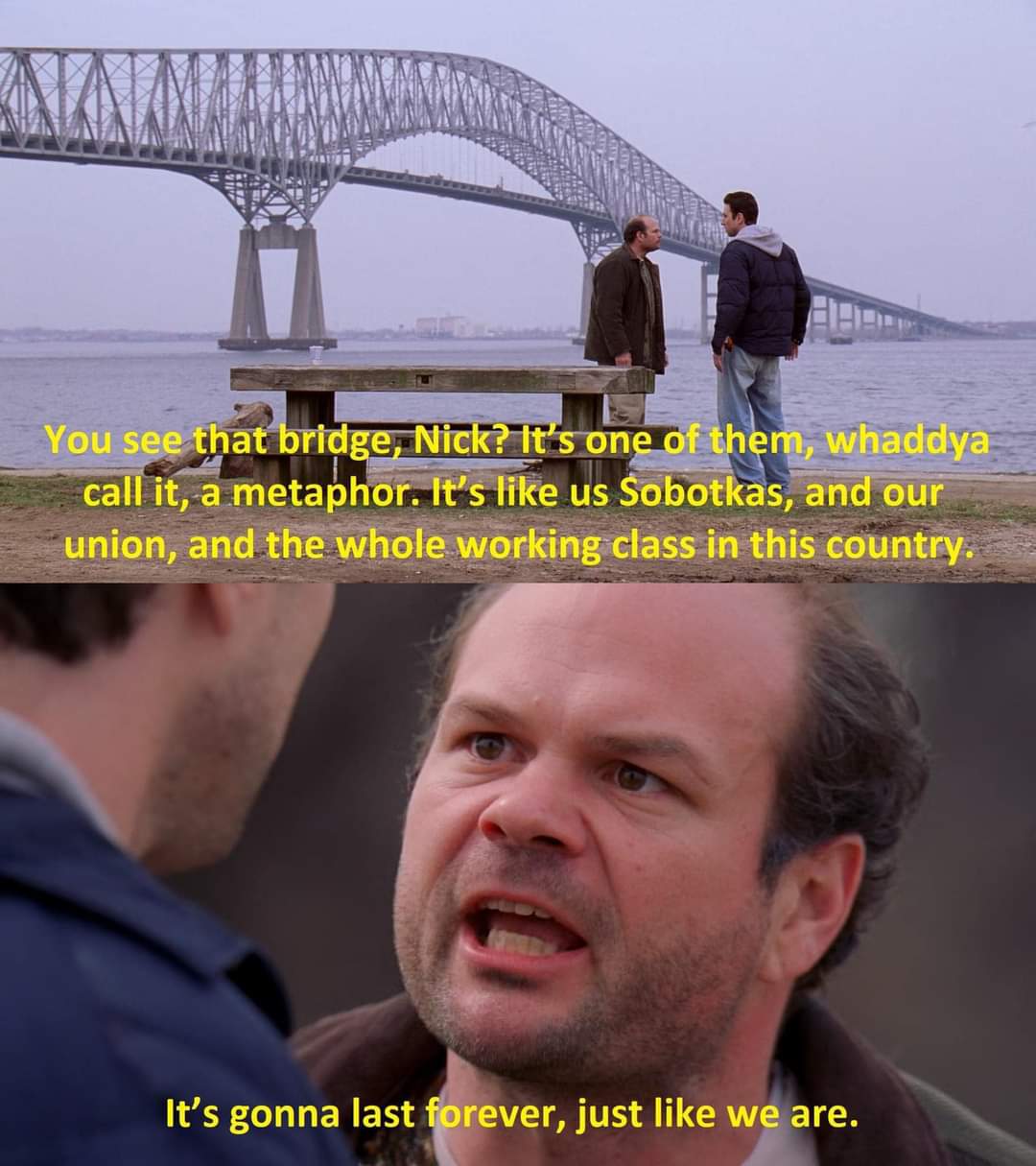March 30 update: "Less-Lethal" Police Killings; Zoomer Anxiety; Maersk Killed the Port of Baltimore; Fascism Then & Now; Boeing's MBA nosedive

Oakland, as some of you may recall, is a city that means a great deal to me, not just for the weather, the landscape, the politics and its very fine residents, but also because I've devoted a large portion of my journalism career to covering criminal justice in that city. Which includes the Oakland Police Department, whose twenty-one year struggle with court-mandated reforms is the centerpiece of my book with Darwin BondGraham (paperback is now out). Even though much of my current work focuses on far right extremism, OPD is an institution I've never stopped keeping tabs on.
Earlier this week, a development came my way in the saga of Sergeant Phong Tran, a veteran OPD homicide investigator who has worked murders in the rough-and-tumble Northern California port city fore more than a decade. In March of last year, Darwin broke news that Tran had paid a witness to identify two men as the culprits in a 2011 road rage killing in North Oakland. In September 2022, both men were freed from state prison after filing a successful post-conviction challenge with the allegations against Tran. Long story short: he was charged with perjury and witness intimidation, and more of his cases may fall apart, per reporting Darwin and I did last June.
This week, I got wind that the city's internal review of how OPD cleared Sergeant Tran of misconduct and returned him to duty had concluded, with some eye-popping results. Several OPD supervisors, including Deputy Chief Drennon Lindsay, were found to have engineered an "unfounded" finding for the bribery allegation against Tran, essentially meaning that not only did OPD maintain they were false, but that the successful habeas corpus writ filed by the two men freed in the 2011 murder conviction at question never happened. This is a huge deal for OPD's court oversight, which centers around failures in the internal affairs process that allowed the Riders to get away with their reign of terror in West Oakland at the turn of the millennium.
Subscribers to Bleeding Edge with access behind the paywall will already know all of this - and it's thanks to that support that I'm able to carve out time and break an exclusive like this at speed - but I'm revisiting the matter at the weekend to reiterate the significance of this case. Even after two decades of minute external scrutiny in one of the most progressive cities in the United States, OPD's command staff felt comfortable short-circuiting an internal affairs investigation that not only put one of their most experienced murder investigators in criminal jeopardy, but could potentially impact hundreds of Phong Tran's cases.
We're in a moment of law & order backlash in this country that stems in part from the right wing reaction to 2020's George Floyd uprisings. However, much of that pushback also is coming from within the criminal justice establishment. History doesn't echo, but it sure as hell rhymes, and we're staring down the barrel of a 1990s-style return to zero tolerance, ends-justify-the-means policing. OPD's handling of this matter is a prime example of how even agencies with some of the most stringent controls in the country can go off the rails - and the necessity of external checks and balances.
Enough about Oakland for one week. Let's get to it.
BLEEDING EDGE JOURNALISM
-Pride of place this week goes to the Associated Press and their collaboration with Frontline and Arizona State University to investigate the deaths of more than a thousand Americans subjected to "less lethal force" by law enforcement over the past decade. From Scott Olsen and Eric Garner to George Floyd and countless others, that Kafka-esque phrase is used as shorthand for physical restraints, chokeholds, Tasers, lead-filled 'beanbag', flashbang grenades and a whole host of other munitions that were first pioneered by military operations in Vietnam, Northern Ireland, and elsewhere before being introduced to domestic police forces. There's an hour-long documentary, a longform and interactive story, and a highly useful database for any local reporters seeking to build on this terrific project. Full credit goes to the AP's executive team for devoting the time and resources to a topic that many newsrooms dismiss offhand until the local precinct goes up in flames.
-Screentime is not good for your mental health. Spending childhood viewing the worth through a tablet or smartphone is even worse. Now there's ample evidence that Generation Z, the first in human history to grow up in an interconnected world, has suffered grievously as a result. Instances of mental health problems, crippling anxiety, self-harm and suicidal ideation have increased directly in line with the rise of the smartphone and social media, per this Observer longread by Jonathan Haidt. I personally read it with the content of the com/764 extortion and CSAM distribution network in mind, which is predominantly composed of Zoomers who prey on their peers. Give the kids books, let them play outside, have sleepovers, and for god's sake do not let them on Meta platforms until they're well into high school.

-Like many of you, I woke up earlier this week to the news that a massive container ship had demolished the Francis Scott Key Bridge over the Patapsco River in Baltimore in a horrifying collision. There's a lot that needs clarifying in this matter, particularly why a ship with previously documented safety issues in South America and Europe lost power right before slamming into the iconic structure, which features heavily in season two of The Wire. Unsurprisingly, the ship's owner Maersk has been hammered by American regulators for its policy of blocking employees from reporting safety issues to the Coast Guard, as required by federal law. David Sirota's publication The Lever (also on Ghost) has made workplace safety one of its wheelhouse beats, and their coverage of this disaster will be the one to watch as more information emerges. Meanwhile, the Port of Baltimore is entirely shuttered. Frank Sobotka's nightmare come true in a plot twist even David Simon and Ed Burns couldn't write.

-The Financial Times' Martin Wolf, one of their foremost columnists and a sage observer of economics and contemporary politics, penned a must-read column on the far right's electoral resurgence in Western democracies. Refreshingly, Wolf steers away from the TRUMP ALL THE TIME approach that the introverted American newsmedia invariably adopts and examines the rise of Neo-Fascist parties across Europe, where they have made striking inroads over the past decade. The charts of vote totals and party support are worth the read alone, but also stay for Wolf's apt usage of Umberto Eco and Hannah Arendt's frameworks for understanding Fascist political and social projects to the current moment. I can't emphasize enough how big a deal it is that a commentator at a (very good, left of center) mainstream broadsheet has decided to unequivocally lay out the stakes of the current moment.

-Finally, we return to Boeing's saga of mismanagement, workplace retaliation and coverup that underpins the highly suspicious death of whistleblower John "Swampy" Barnett, a retired engineer at the aerospace giant whose suspicious death earlier this year came the same day after giving a deposition against the embattled corporate behemoth. Maureen Tkacik at the American Prospect has a searing feature about the MBA-driven corrosion of a once-proud manufacturing titan that pursued "efficiencies" and shareholder profits at the expense of safety, integrity and a competent unionized workforce. Barnett's story is the hook, but the broader story should be painfully familiar reading for anyone familiar with the hollowing out of any number of companies where consultants and 'managers,' not engineers, journalists, technicians or the actual people who understand their firms, take charge.

BOOK - I cannot recall how many times I've recommended Kevin Flynn and Gary Gephardt's The Silent Brotherhood (1989) enough over the past seven years (!) I've spent covering the far right. Long before the Atomwaffen Division, the Alt Right and even Tim McVeigh, Robert Jay Mathews's underground white nationalist guerillas were long considered the most potent domestic terrorism threat facing the United States, and continue to be a lodestar for right wing extremists here and abroad.

The authors began covering Mathews' white nationalist guerilla group in the mid-1980s while working for the Rocky Mountain News, following the 1984 murder of talk radio host Alan Berg. The Denver journalist had infuriated Mathews and his comrades by attacking the Aryan Nations organization out of Hayden Lake, Idaho, which Mathews was closely associated which and where he'd recruited the lions share of his militants. Their goal was to build a white nationalist homeland in the Pacific Northwest, and to achieve it, the Silent Brotherhood (also known as The Order) aimed to bring about concessions from the federal government through a campaign of irregular warfare, funded by armed robberies and counterfeiting.
Things...didn't quite work out for Mathews. The FBI were able to identify the group's members and track them down, thanks in large part to a pistol Mathews dropped from his waistband during an armed car robbery in Ukiah, California. Their cops-and-robbers saga, which is getting turned into a feature film starring Jude Law amongst others, ended on Whidby Island in Washington State's Puget Sound, where Mathews was killed during a shootout with the feds. Flynn (now a Denver city councilman) and Gephardt's book has a tremendous deal of first-hand reporting and interviews they were able to get by finding and speaking with key players on both sides of this story, a feat that some recent and over-hyped books (Bring the War Home) have failed to replicate even after lifting generous amounts of material from this work.
FILM - Jean-Pierre Melville (born Jean-Pierre Grumbach) is my favorite French director, hands down. He's stylish, knows how to build drama (the safecracking scene in Bob Le Flambeur is still taught in film schools for the teeth-grinding tension it produces), and managed to get the absolute best out of Alain Delon, arguably the iconic French actor of the Twentieth Century along with Jean Gabin and Jean-Paul Belmondo (do they have other names in France aside from "Jean" in the 1920s and 30s???)

Army of Shadows (1970s) is one of the bleakest, grittiest and most compelling World War II films even made - which is a huge body of work to go up against. Based off Joseph Kessel's 1942 book of reporting on the French maquis and their clandestine war on the Third Reich, it pulls no punches in exposing the isolation, paranoia, and seeming hopelessness the Resistance faced. War leaves scars, and Melville's body of work never pulls back from the shadow of the Second World War - in which he fought as a soldier and then member of the maquis, adopting "Melville" as his nom de guerre and later, his pen name. You can either order the disc from Criterion or (shudder) rent it from Amazon.

MUSIC - At some point in the last decade, I was on a ride-along with the cops in (up to no good) Inglewood, a city adjacent to South Central Los Angeles where there'd been a spate of unlawful officer-involved shootings. They put me in the car with a sergeant who was pretty dialed in and by the book - clearly, their best public-facing image. He'd grown up in Inglewood back when it was majority white, worked biker gangs as part of a task force in North LA County and loved to free dive in his spare time.
But where I really got this dude to start talking freely and candidly was when we got on the topic of music: he'd been a teenager in LA's South Bay during hardcore punk's early 1980s heyday and gone to god knows how many Black Flag shows in Hermosa and Redondo Beach and Torrance and all those other old aerospace towns down there. We put 'Damaged' (1981) on the Crown Victoria's speakers in between calls, and he proceeded to spill all the guts about the shitty, out of control cops he had to supervise. So thanks Henry Rollins & company, for one hell of an ice-breaker





